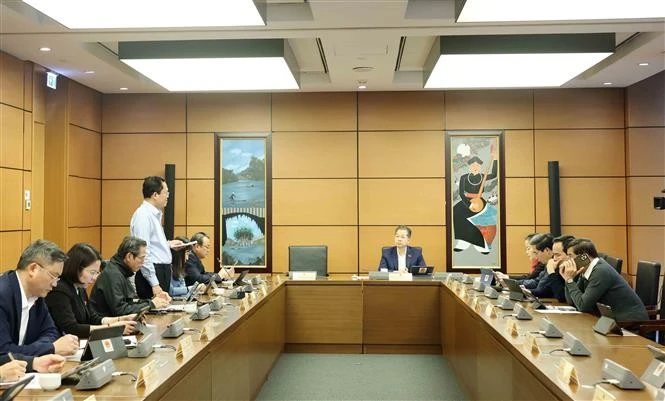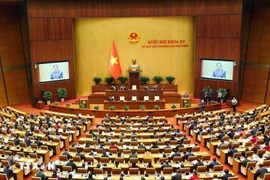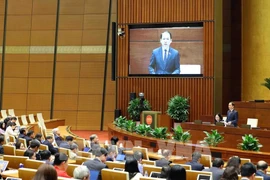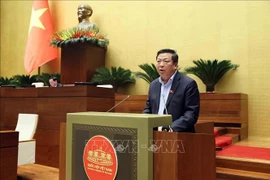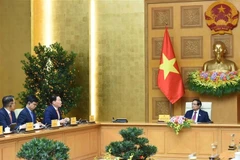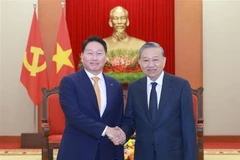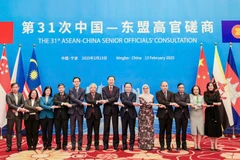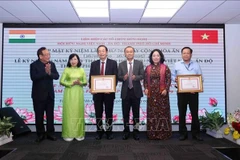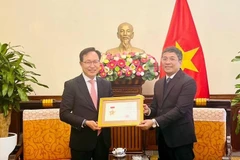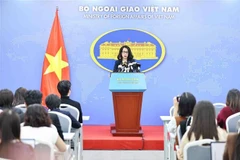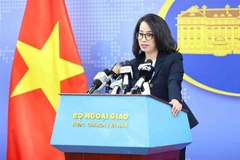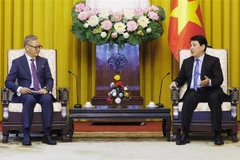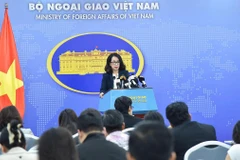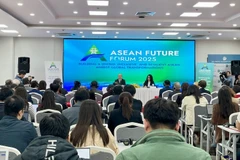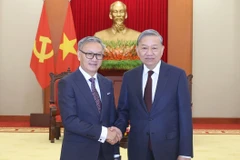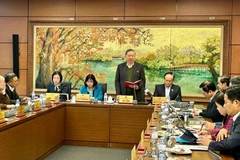Hanoi (VNA) – The National Assembly (NA) discussed a proposal to revise Vietnam’s 2025 economic growth target to at least 8% during its extraordinary ninth session on February 14.
Lawmakers emphasised that this ambitious goal underscores the government’s strong commitment to socio-economic development during the 2021-2025 period and lays the foundation for long-term prosperity.
Prime Minister Pham Minh Chinh acknowledged global challenges, including trade tensions and economic uncertainties, but affirmed that Vietnam must act decisively.
Chinh emphasised the need to foster innovation across ministries, businesses, and society to achieve the growth target. He underscored the importance of boosting credit expansion, integrating fiscal policies, and offering tax and fee incentives to support businesses and individuals in production and trade.
To drive economic momentum, the PM highlighted three strategic breakthroughs: institutional reform, infrastructure development, and human resource enhancement. Key infrastructure projects include the Lao Cai-Hanoi-Hai Phong railway and urban transit systems in Hanoi and Ho Chi Minh City. These projects will be implemented alongside technology transfer, workforce training, and efficient capital allocation. Special policies will be introduced to accelerate progress, minimise costs, prevent cost overruns and delays, and ensure strict oversight, he noted.
The leader outlined a dual approach to economic growth: revitalising traditional drivers such as investment, export, and consumption while accelerating new engines through science, technology, and innovation. He said the government will institutionalise and implement an action plan for the Politburo’s Resolution 57-NQ/TW dated December 22, 2024 to promote national digital transformation, enhance labour productivity, and ensure sustainable development.
Citing key projects like the 500kV circuit-3 power transmission line and Long Thanh International Airport, Chinh stressed that effective management and execution are crucial for success.
The PM stressed the need for administrative reform to improve efficiency, streamline procedures, and eliminate bureaucratic hurdles. The ultimate goal is a prosperous and modern nation, where people enjoy happiness, stability, and an improved quality of life.
According to NA Chairman Tran Thanh Man, achieving 8% growth or higher this year is crucial for Vietnam to reach double-digit growth in the 2026-2030 period, ultimately attaining upper-middle-income status by 2030. This is a major direction of the Party, requiring comprehensive solutions from the legislature, effective execution by the Government, and strong commitment from localities, he noted.
The key to achieving this target, Man said, lies in fostering private sector growth, as private investment currently accounts for 55% of total social investment. Institutional reforms are essential to build investor confidence.
To facilitate private investment, the NA, during its 7th session, addressed key bottlenecks by accelerating the enforcement of amended laws on land, real estate business, housing, and credit institutions, effective from August 1, 2024. These legislative changes provide a solid foundation for the Government to drive economic growth in the second half of the year, delivering significant progress.
At this 9th extraordinary session, the NA amended the Law on the Promulgation of Legal Documents, significantly decentralising policy-making authority to the Government and local administrations. Under this framework, the NA will focus on overarching legislation, while the Government will issue decrees, and ministries will be responsible for circulars.
Man stressed the need for transparent and open investment procedures. For sustainable and deep-rooted economic growth, he said the Government should prioritise long-term revenue strategies over short-term tax collection goals, ensuring fair and efficient taxation to support businesses and production. A favourable regulatory environment will serve as a catalyst for investment from both enterprises and the public, he noted.
Among the six key tasks to achieve at least 8% growth, the Government has placed a strong focus on addressing inefficiencies such as stalled projects, unused public land, unresolved disputes, and prolonged legal cases. While this is a sound policy direction, the top legislator stressed that its successful implementation requires significant effort.
Achieving the growth target demands determination from the Party, the State, central and local authorities, and the entire population. Only through collective strength can this ambitious goal become a reality, he added./.
